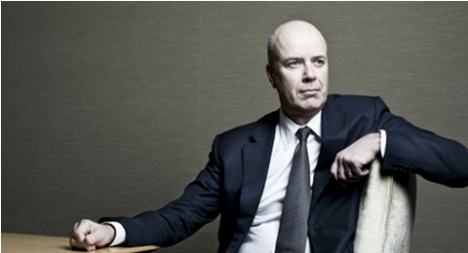Fairfax looks to consolidate its regional newspapers; may share printing presses with News Corp
Fairfax Media is looking for more opportunities to consolidate regional mastheads within its Australian Community Media (ACM) business, CEO of the publishing company Greg Hywood has said.
The comments, made by Hywood on an investor call this morning, come amid reports the company is considering selling its regional newspaper business, with the Fairfax CEO telling analysts it was “looking at all the opportunities” when asked about a potential sale or merger with News Corp’s regional business.
“With over 200 titles and if there are consolidation opportunities in there down the track will will certainly take them,” Hywood told investors.



Hywood has worn out his welcome. The guy regards shrinkage as a goal. We all accept the realities but it seems to me that the products are not managed well and have completely lost their status with readers. It’s especially noticeable with the AFR, which in my experience has dropped off the business radar. No one seems to read it any more.
I’m stuck with losses so all I can do is vote against his ridiculous pay arrangements and the equally fat deals his colleagues are on.
Why you would invest in a print media company who compete with a government funded behemoth (ABC / SBS) is beyond me. The returns are well and truly diminishing, the only part of the business making money will be sold off for a tidy profit to fund corporate handshakes.
If I’d been watching the sell signal was when the board went to war with itself. But I wasn’t and completely missed the fact that Hywwod was one of the old guard.
As to competition I think your analysis is wrong. The ABC has in the past typically relied on Fairfax for actual news. It doesn’t actually generate a lot of news itself. In fact the rotten state of Fairfax news reporting is probably one reason that we seem to have a lot of trivia in popular debates.
What a long slow painful death this is to watch.. over 5 or so years they are a shadow of their former selves
Fairfax have moved away from objective fact based journalism to click-bait and activism.
The proper journos are booted out, the opinionistas reign supreme while Fairfax management failed to see the digital opportunites when they arose, thinking the “rivers of gold” would keep flowing in print.
With their bad journalism and self righteous political activism, I am afraid their demise will not be much lamented.
The problem is that Fairfax haven’t found a way to sell old-school journalism in the current environment. They used to sell a lot of it to people who just wanted to look at house and car ads through bundling. But there were also plenty of people who were willing to pay for stories to read. Now, there is plenty of money going into buying digital distribution (mobile data/DSL/etc), but not so much to content. Spotify survives by paying music rights holders next to nothing. I don’t know how Netflix can do what they do on so little per person per month. Facebook and Google thrive by selling ads attached to content they pay nothing for.
Fairfax can make click-bait and light opinion cheaply, get people to see it, and get some ad revenue. But that model doesn’t work with more expensive research and analysis based content, especially when few outside a particular state or country are likely to be interested in it.
JohnB – what total nonsense. Your last comment speaks to why you really aren’t a Fairfax fan – their political leanings. The fact is they are pretty much the only news outlet in Australia still uncovering serious corruption and dubious behaviour in political and corporate life. Where Sydney, New South Wales, and Australia more generally would be without Fairfax’s investigative work, I hate to think. Certainly there’d be a lot more crooks and crooked politicians enjoying free reign.
Fairfax go & buy more newspapers
Then dedicated workers at these papers, have to sit there for at least 2 to 3 years wondering if they have a job.
Why? because they love their jobs, hoping they can keep them.
But not for long, they just want out.
Moral goes down as far if not more than it can.
What use to be a happy friendly place turns really bad.
It is also sad to look back & see Customers also loose the personal contact & service they used to receive.
But they are just customers!!!, not the bottom line $
What use to be your home away from home becomes a jail.
Except for some so call managers that suck up as they wouldn’t get a job anywhere else.
Also you can asks Hywood questions at the meetings & he could go on & on up to 15 mins, but hasn’t actually answered your question, he should have been a bloody politician.
Very sad!!!
Hywood is a politician.